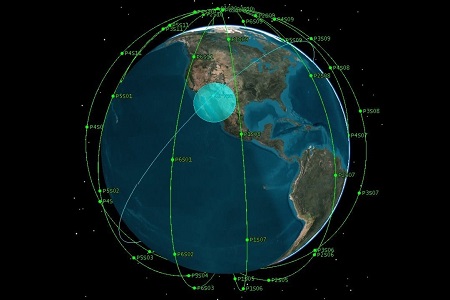For this contract, Iridium partners Satelles and SEAKR will bring their expertise as subcontractors to assist with the project.

Iridium Communications Inc. has won a research and development contract worth up to $30m by the United States Army (Army) to develop a payload to be hosted on small satellites that supports navigation systems, guidance and control for the global positioning system (GPS) and GPS-denied precision systems. The new experimental Iridium payload is intended to be hosted by another Low Earth Orbit (LEO) commercial satellite constellation, complementing the Iridium constellation’s capabilities.
Through this contract, the US Army intends to develop this payload to support the concept of a rapidly deployable smallsat constellation to provide more effective sensor-to-soldier data transmission when in the field. The development of this new payload is based on Iridium Burst technology, a service that can transmit data to millions of enabled devices at a time from space.
Speaking about the contract, Scott Scheimreif, Executive Vice President, Government Programmes, Iridium, said: “Iridium has always been focused on providing innovative, reliable and high-value services to the US warfighter. This programme can help add to warfighter readiness to conduct a full range of military operations at a tactical level. This includes the ability to enhance the effectiveness of military units, weapons and equipment during combat against near-peer adversaries.”
The US Department of Defense (DoD) and Iridium have partnered for more than 20 years, with hundreds of thousands of US government subscribers utilising Iridium push-to-talk (PTT), voice, IoT, L-band broadband and Iridium Burst services. For this contract, Iridium partners Satelles and SEAKR will bring their expertise as subcontractors to assist with development.
Matt Desch, CEO, Iridium, added: “This is one of the largest engineering contracts in Iridium’s history, and we’re pleased to once again bring the value of Iridium and our partner ecosystem to the fore at the request of the United States Army. It also represents another phase in the evolution of our growing relationship with the DoD, and we’re excited to engage on this experimental multi-constellation adaptation of our service.”
This research and development project was enabled through an “Other Transaction Agreement” (OTA) in support of the Army and was entered into between Advanced Technology International (ATI) and Iridium under the authority of the Aviation and Missile Technology Consortium (AMTC).
















































































